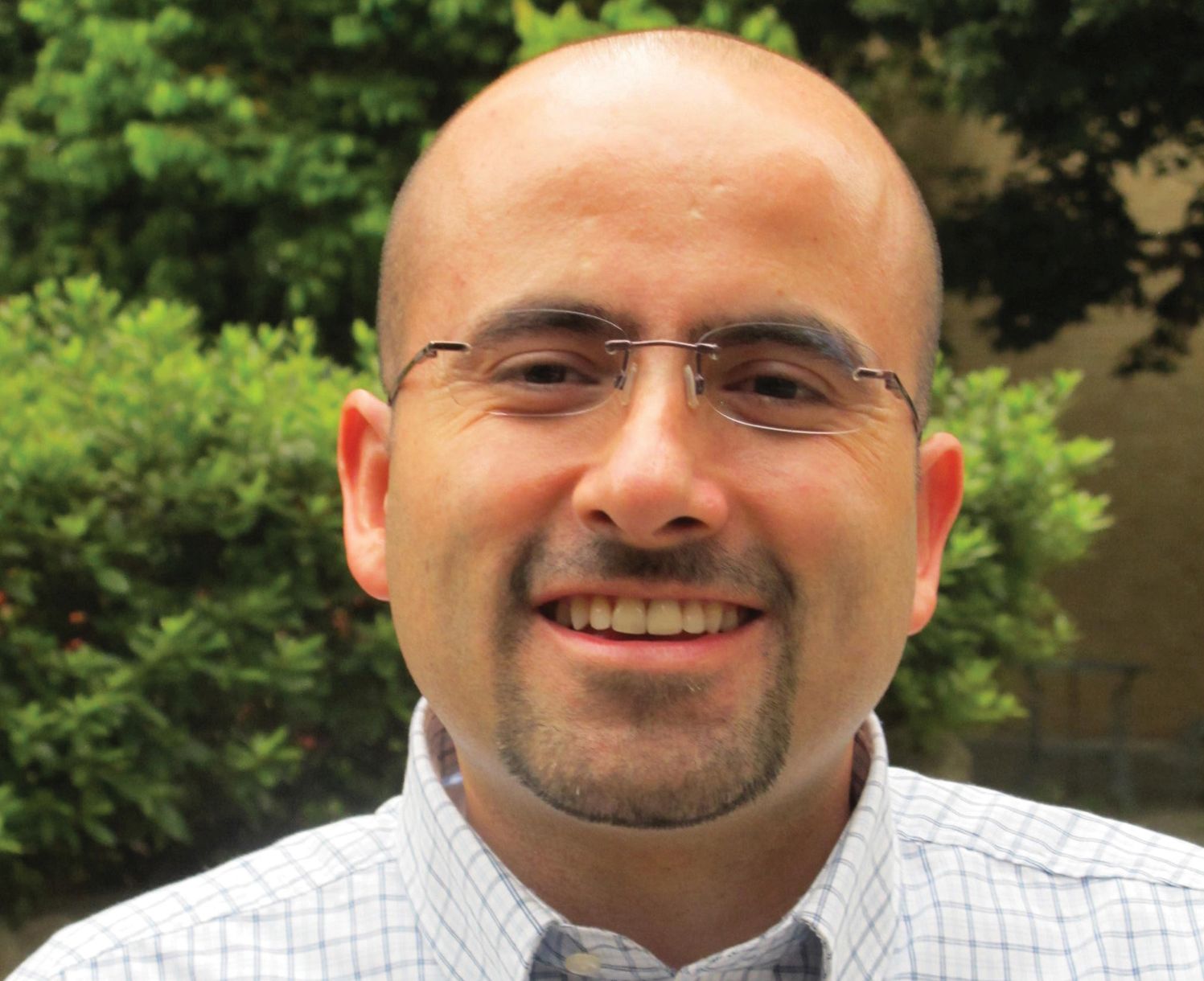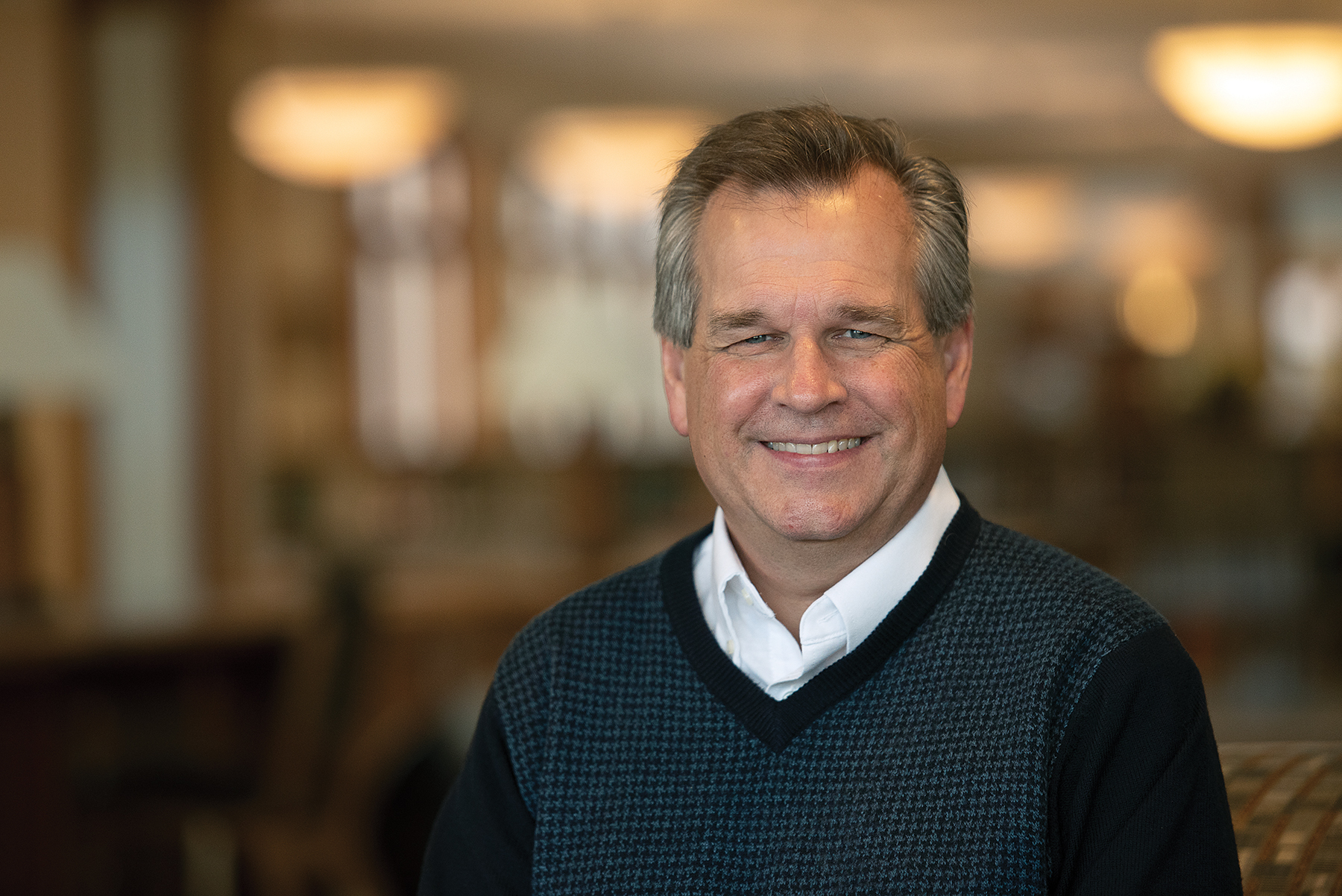Posted: September 18, 2020
Mennonite World Conference and AMBS enter partnership in “sharing of gifts”
Mennonites around the globe yearn for Anabaptist theological education, identity formation and leadership development, but attending an Anabaptist-related college, university or seminary has not been possible for Mennonites in many countries. A new partnership has been designed to respond to this need.
Mennonite World Conference (MWC) and Anabaptist Mennonite Biblical Seminary (AMBS), Elkhart, Indiana, have forged a new agreement to provide Anabaptist-based theological and church leadership education to Anabaptists around the globe in both for-credit and noncredit formats. Pastors and church leaders will be able to take courses in biblical and theological studies, church history and ministry in their home countries.
A memo of understanding between MWC and AMBS lays out the details of what César García, MWC general secretary from Bogotá, Colombia, describes as a response to a 2003 call for “sharing of gifts” among MWC member churches. AMBS is owned by Mennonite Church Canada and Mennonite Church USA, which are two of 107 member churches (national conferences) of MWC, a “communion of Anabaptist-related churches linked to one another in a worldwide community of faith for fellowship, worship, service and witness” that began in 1925.
“We perceive this relationship with the seminary as a gift that we are receiving from Mennonite Church Canada and Mennonite Church USA in order to support global Anabaptist churches,” said César García.
Rapid growth creates need to equip leaders

While on the whole, membership is declining among Mennonite churches in the U.S. and Canada, many Anabaptist-Mennonite churches in the Global South are growing rapidly. Along with this growth comes a need for leaders grounded in Anabaptist faith and theology.
“After more than a half century, several churches born of Mennonite work do not know who the Mennonites are or what their particularity is within the larger Christian family,” wrote Burkina Faso Mennonite church leader Siaka Traoré in Anabaptist Songs in African Hearts, MWC’s Global Mennonite History volume (Good Books, 2006). This need has become more urgent as the Anabaptist family has expanded around the world, said César García.
“Now that most of our Anabaptist member churches are in the Global South, we have a huge need to do theology from an Anabaptist perspective in each context,” César García said, noting that opportunities for discipleship training as well as more specialized ministerial leadership training would be embraced.
César García said that through their online platforms, the most popular evangelical, fundamentalist and charismatic preachers influence theological development in MWC congregations around the world.
“When we lack Anabaptist identity, it is so easy to absorb the influence of these theologies without entering into a real conversation with them,” César García said. “And this affects how we make decisions in our global communion, how we think about the structure of our global church, and how we exercise the responsibility of leadership in our churches. We want to help our churches enter into a discerning dialogue instead of blindly receiving from other traditions.”
Joining gifts to build up the church
AMBS leaders have been working to make Anabaptist educational offerings available to church leaders around the world — in their own contexts. Beginning in 2017–18, former AMBS President Sara Wenger Shenk led an initiative to recruit participants for seminary courses and certificate programs that students could engage from a distance.
Conversations between César García and Sara Wenger Shenk – and subsequently with AMBS’s incoming president David Boshart – about working together to strengthen Anabaptist identity in the global communion led to a meeting in January 2020 to formalize a new partnership. The shared memo of understanding was affirmed in March and April by Mennonite Education Agency and Mennonite Church Canada executive leaders, MWC Faith and Life Commission leaders and Executive Committee members, and the AMBS Board of Directors.
According to “points of convergence” outlined in the memo of understanding, both MWC and AMBS are dedicated to strengthening the life and ministry of the churches they serve and to cultivating their rich heritage as Anabaptist organizations. They see their new partnership as a way to join their gifts in building up the church and its ministries together.
Among the gifts that MWC brings to the partnership are an extensive network of international relationships and connections, communication channels and an accountability structure. MWC leaders will help identify professors from around the globe who can offer global perspectives as sessional faculty members at AMBS. They will also promote program and course offerings to member churches.
AMBS brings more than 70 years of experience in educating church leaders from an Anabaptist perspective, including many international students. Since the launch of AMBS’s distance-friendly Master of Divinity Connect program in 2013, faculty members have gained experience in online instruction. The seminary’s teaching and administrative faculty are creating curricula and curating library resources that are increasingly attuned to global contexts.
David Boshart anticipates that the partnership will further enrich the quality of instruction at AMBS: “Our teaching faculty will be engaged in settings where the church is growing at such a pace that it is outstripping its resources for leadership development. Working with churches and leaders in contexts such as these will enhance their teaching because they’ll gain a much broader exposure to and understanding of the vitality and resilience of the global Anabaptist community, especially in the Global South.”
Opportunities for synergy

In 2019, in the process of developing its first fully online master’s degree — the 46-credit-hour Master of Arts: Theology and Global Anabaptism — AMBS began a partnership with Meserete Kristos College (MKC) in Ethiopia, which is part of Meserete Kristos Church, an MWC member church. In 2019–20, nine MKC graduates in Ethiopia began studying through a cohort version of this degree program, which combines online instruction with short-term classes taught on the MKC campus by visiting professors from AMBS.
Also in 2019, the seminary’s Journey program expanded to include a cohort in Southeast Asia. The two-and-a-half-year distance-friendly leadership development program is designed for church leaders without formal education and lay leaders exploring a call to ministry.
Although these programs are open to participants in MWC member churches, David Boshart noted that the educational options made possible by the new MWC-AMBS partnership could take many different forms. International mission and educational leaders have offered strong encouragement to keep the options “as open and flexible as possible,” he said.
Gifts for mutual growth
Both César García and David Boshart have high hopes for this sharing of gifts for mutual growth.
“These educational opportunities will equip new leaders in the global church with more awareness of the tradition to which they belong – and with the capacity to enrich other traditions with our distinctives while also receiving from others,” said César García.
David Boshart agreed, saying, “I think this can only be good for a more unified and clarified sense of Anabaptist identity for the global communion as AMBS meets educational institutions around the world to think together about what it means to be Anabaptist in the world today.”
—A joint release of Anabaptist Mennonite Biblical Seminary and Mennonite World Conference by John David Thacker, Annette Brill Bergstresser (AMBS) and Karla Braun (MWC)
Click here for more information about AMBS's global course offerings |




Comments: